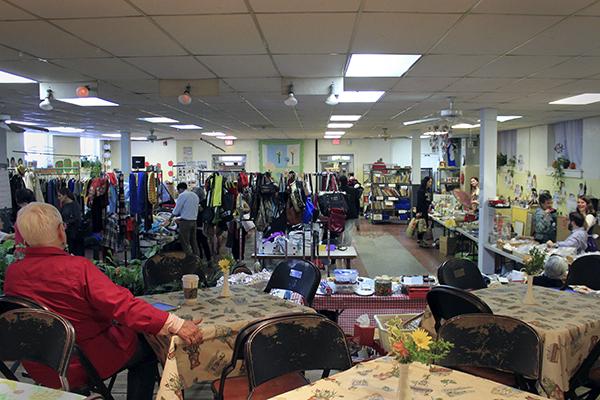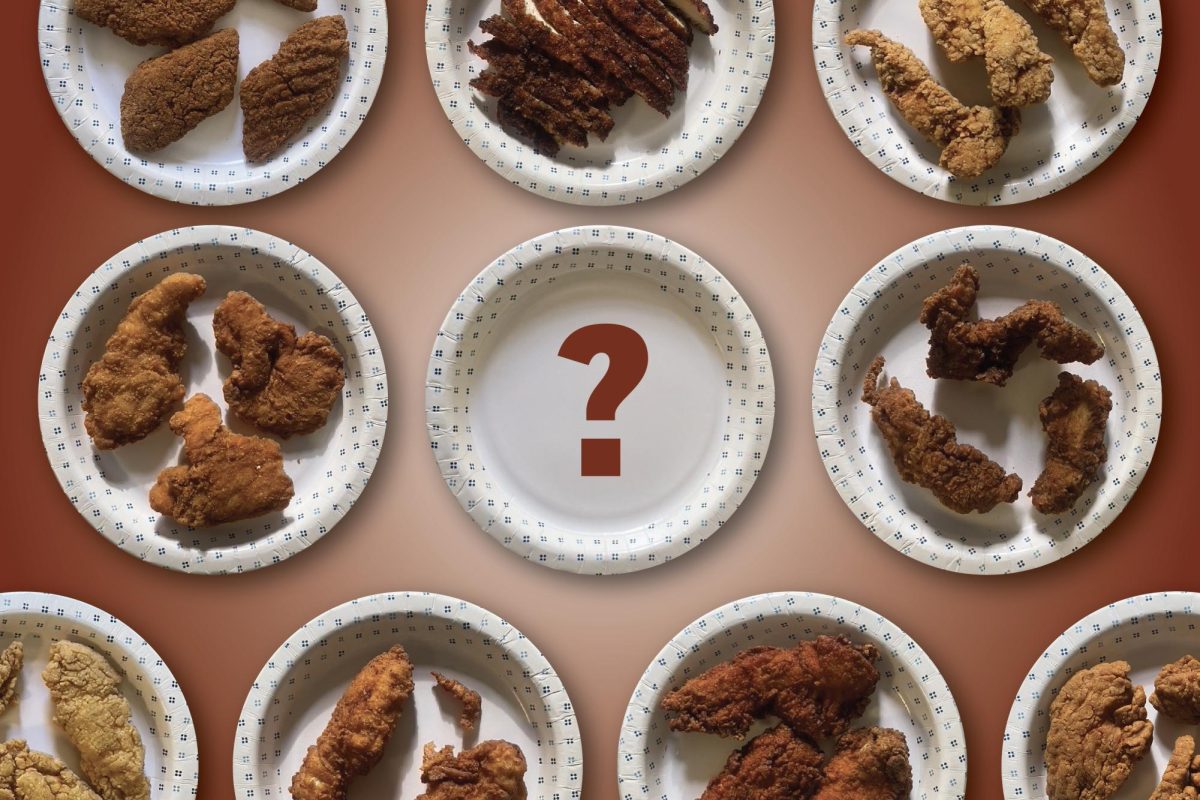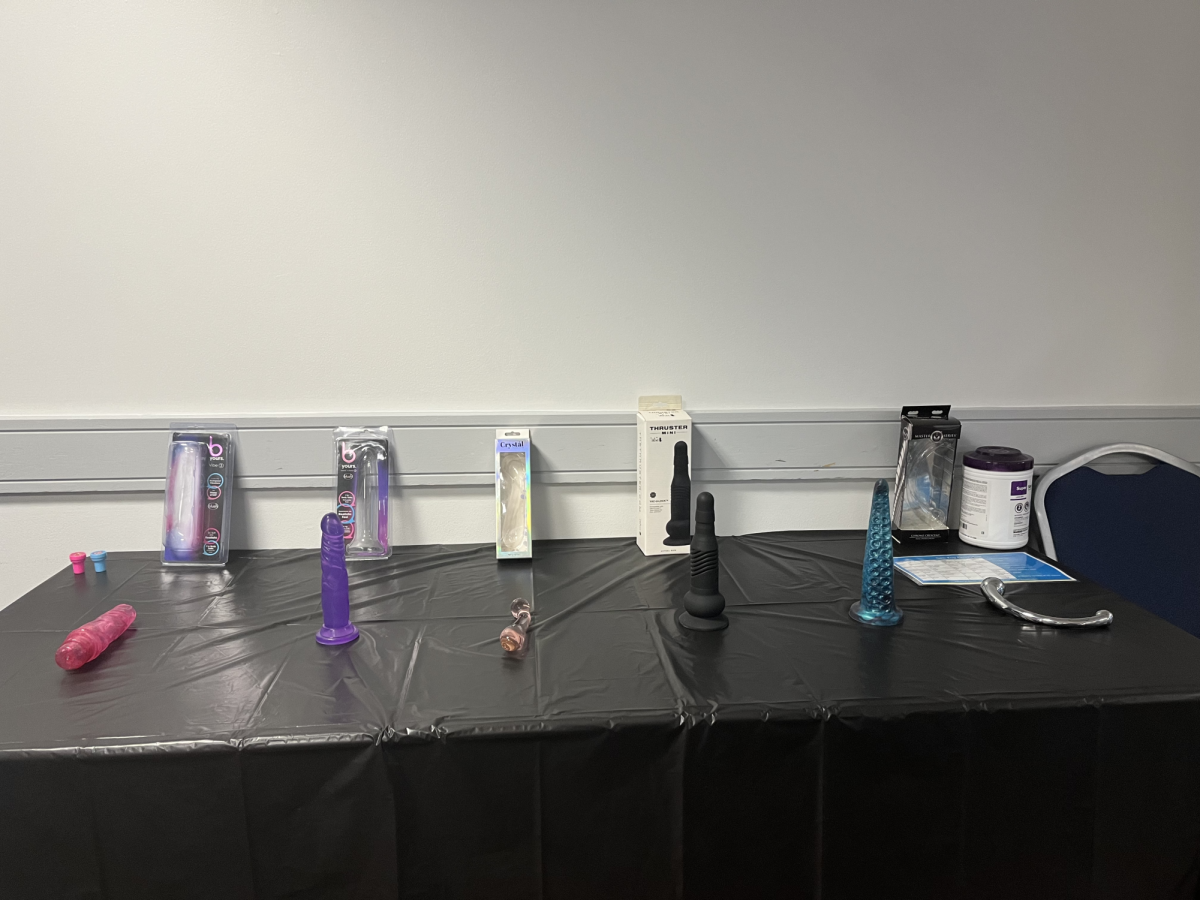Updated: Oct. 29, 2015 at 7:43 p.m.
At the United Church on 20th and G streets – with a red brick steeple that appears out-of-place near modern academic buildings and the World Bank – dozens of Foggy Bottom residents flocked to the basement last week to browse antique dishes, used books and worn clothing.
For the city’s German community, the church – which formed as a result of a merger between D.C.’s Concordia German Church and Union United Methodist Church 40 years ago – is a symbol of Foggy Bottom’s German roots.
One of the United Church’s members, James Semmelroth Darnell, said that the building was first established as the Concordia German Church in 1833, when Foggy Bottom was known as “Little Hamburg.”
A German settler named Jacob Funk settled Foggy Bottom, which was also nicknamed “Funkstown” in the late 1700s, according to a D.C. Preservation League brochure. In the 1850s, German immigrants flocked to the area to pursue jobs in the glassworks and brewing industries.
Since its founding, Darnell said the church has been a community center for prominent German-Americans in D.C., including the renowned composer John Philip Sousa who was baptized there in the 1850s.
The Union United Methodist Church also served as a hospital during the Civil War, Darnell said. United Church has been offering German worship services since it was founded. Though the German services came to a halt around World War II, Darnell said the congregation became more active following the war as citizens of East Germany fled to the United States.
“Because of D.C.’s nature of having the German and Austrian and Swiss embassies here in town, and the World Bank and the IMF, and numerous NGOs, we’ve been able to maintain a German-American ministry here,” he said.

During the holidays, the church hosts an annual concert by the Washington Sängerbund, a D.C. German-American choir, which Darnell said draws a crowd of about 700 people. The establishment has also partnered with the German embassy to host choir and orchestra concerts throughout the year.
“In other German cities, like Baltimore and Chicago and New York, the German community has really almost died out because they don’t have the same things that we do,” he said. “And so we’re able to keep it a living thing.”
Darnell added that the church, which has been raising funds for itself with rummage sales for more than 40 years, also has a special relationship with the University. When GW moved its campus to Foggy Bottom during the early 1900s, Darnell said that the United Church offered its basement as space for classrooms.
Margaret Gonglewski, the director of GW’s German language program, said that professors in the department have taken advantage of the local resource to educate their students. Last year, Gonglewski said she sent students to a church celebration of the fall of the Berlin Wall. She said the church’s presence strengthens the German community and is “an example of living German culture.”
“I think it brings German culture to life in such a different way from taking my students to the embassy,” she said.
Bill Federici, the senior pastor, said that the building stands as one of the only reminders of Foggy Bottom’s German history.
“It’s helped define the neighborhood,” he said. “The neighborhood has changed around it, so it stands as a constant over all these years.”
Dana Pilotti and Lauren Gomez contributed reporting.
This post was updated to reflect the following correction:
James Semmelroth Darnell is a member of the church, not its minister. We regret this error.







